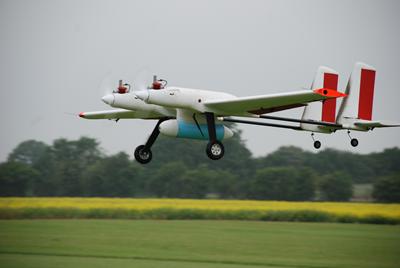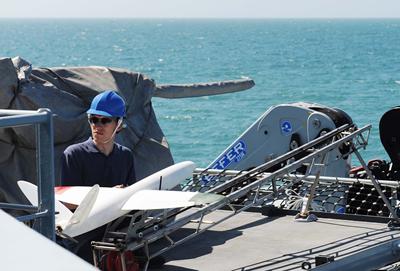£2.5 m funding for Southampton-led environmental technology training

The University of Southampton is to share in £2.5m funding to train the environmental scientists and engineers of the future in the use of smart and autonomous observation systems (SAOS).
Innovative sensor platforms such as drones and autonomous robotic submarines play an increasingly important role in environmental science, carrying out tasks from monitoring air pollution to exploring the deep ocean.
The new Centre of Doctoral Training in ‘The use of Smart and Autonomous Observation for the Environmental Sciences’ known as NEXUSS (NEXt generation Unmanned System Science), will provide specialised training in this increasingly vital area, creating a community of highly skilled people whose expertise will contribute both to scientific breakthroughs and to economic growth.
NEXUSS is funded by the Natural Environment Research Council (NERC) and the Engineering and Physical Sciences Research Council (EPSRC) and is led by the University of Southampton in partnership with five other leading academic and research centres (British Antarctic Survey, Heriot – Watt University, National Oceanography Centre, Scottish Association for Marine Science and University of East Anglia). It will fund training for three annual intakes of ten PhD students each, starting in 2016.

The Centre will provide the next generation of environmental scientists with the necessary skills to develop and deploy ambitious new unmanned systems, which can cover vast areas and stay in place for long periods. They can also be sent to places traditionally considered too difficult or dangerous for humans to work, potentially opening up whole new fields of enquiry.
Professor Alberto Naveira Garabato, from the University of Southampton and Director of NEXUSS, said: “We are delighted to be awarded this funding by NERC and EPSRC. It is an outstanding opportunity to develop a new generation of environmental scientists that is more aware of the vast possibilities that SAOS approaches offer, and that can take forward the environmental application of these technologies in decades to come. We are particularly excited by our strong partnerships with industry, government and other SAOS stakeholders, which will allow us to better understand how our Centre may develop the highly employable leaders that the UK needs to rise to future environmental challenges.”
Professor Duncan Wingham, NERC chief executive, said: “Smart observation systems are an exciting and innovative field in which the UK has world-class capabilities; I am delighted that NERC and EPSRC are investing in the skills needed to maintain this position. We have made major investments in SAOS in recent years, and this CDT will produce the expertise to ensure future researchers can take advantage of these investments, using new technologies to address the environmental challenges we face and support growth across the UK economy.”
Professor Philip Nelson EPSRC’s chief executive and former Pro Vice-Chancellor at the University of Southampton said: “Centres for Doctoral Training are extremely popular with students and industry alike as they address real-world challenges and skills needs. EPSRC is pleased to be working with NERC to support the NEXUSS CDT as it will cover areas such as robotics and autonomous systems which are firmly within our remit.”